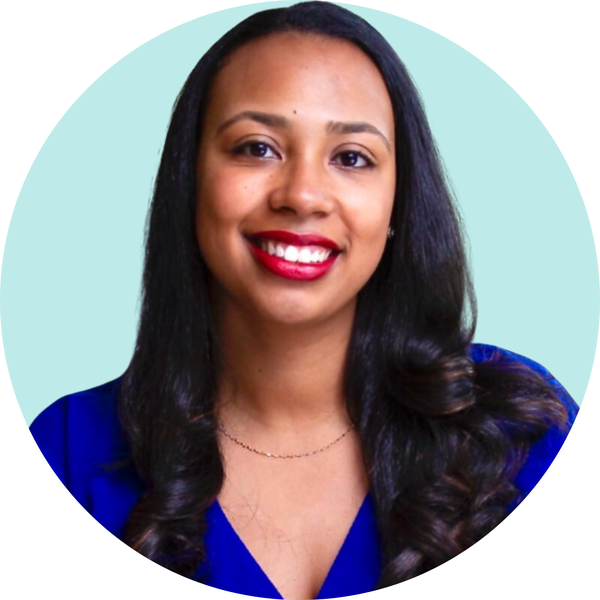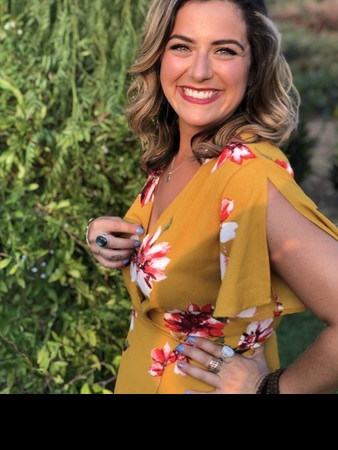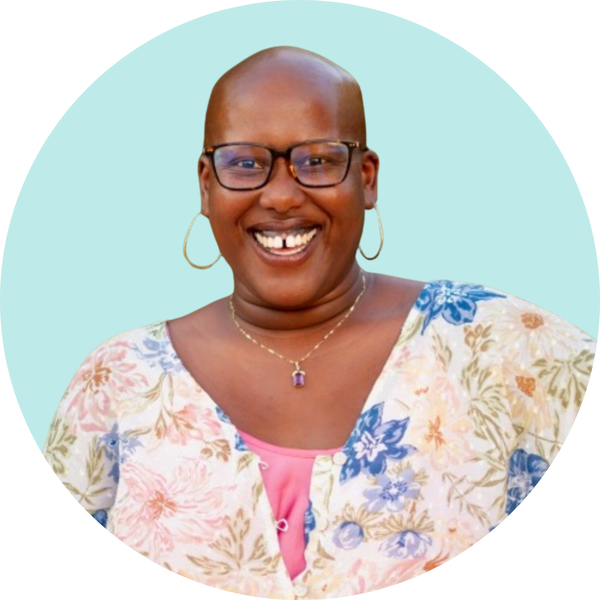



What’s the most important skill every person should hone throughout their career and life, for that matter? The ability to listen. Learn how you can become a better listener, and thus, a better salesperson in this virtual chat!
You asked, she's answering:
What’s the most important skill every person should hone throughout their career and life, for that matter? The ability to listen. Learn how you can become a better listener, and thus, a better salesperson in this virtual chat!
You asked, she's answering:
Jamie Lipiner is a Sales Leader, currently at PowerToFly, who partners with HR Executives, CEO's, CTO's, and other professionals who are committed to building more diverse and inclusive teams.
Jamie is passionate about human connection and equality. She has built sales teams, led product teams, transformed company cultures, and has trained professionals throughout the world. Her knowledge ranges from SaaS sales to social media marketing to HR best practices and beyond.
_________________________________________
Q: How can I become a better listener?A: It's a matter of being proactive. I think that one of the first things you can do is to call yourself out anytime you catch yourself going to check your phone, or going to check an email, while you’re listening to someone. Take the time to actually turn off notifications because you could be so in it, and then all of a sudden, you see something pop up on the side of your screen, and you become disengaged.
In addition, mirroring body language shows that you are clearly listening and paying attention to someone because you have to see them in order to do that. Also, ask the people in your life if they view you as a good listener. Get feedback because maybe you don't even know whether or not you're a good listener.
Q: Can you elaborate on the process of ‘active listening’?A: Active listening is super important. It can take you from being just a salesperson to being a true partner and consultant. With active listening, you're listening for the entire time. The reason that it's active listening is because it's not just somebody saying something, and you just waiting for your turn to speak. It's engaging with them; it's responding to them; and it's reiterating what they say.
Another thing about truly listening is it's not just literally listening with your ears. If you're having a video call or you're meeting in person, are you looking at their body language and noticing the intonations in their voice? Are you giving eye contact? Are they giving you eye contact? Are they engaged? All of this is part of active listening.
The first stage in active listening is to truly, truly listen. In sales, prospects are often ignored or talked over because our focus as salespeople is actually making the sale, not the person on the other end making the purchase. What happens is when we actually show that we value them as a person, that we value their concerns and their problems, it is so much easier to build trust and rapport. It ensures that it's a true conversation and a mutually beneficial experience, not just that it's benefiting us as salespeople, and we get to make the sale.
The next point, which is one of the most important things you can do in sales conversations, is to reiterate that you heard what the prospect said. There's a couple of different ways that you can do this. The first is you can repeat what you heard verbatim. This is the easiest way to do it, and while you're practicing, if this is not something that you're used to, start there first. The other way is to paraphrase it, so you're kind of repeating what you heard verbatim, but kind of putting it into your own words. And the last is to completely put what you just heard into your own words. This is going to take a little bit more skills - you have to really be thinking quickly on your feet.
The third point is to confirm what you heard. It's one thing to just repeat what you heard from them, and then tell them about your product. Instead, this is about telling them what you heard, and then asking them if you got it correct. Not only are you letting them know that you heard them, but you're confirming that what you heard is actually on point and accurate. It's a really important step - it just takes a second.
The fourth and final step of active listening is asking a relevant follow up question. And the key here is to try to keep it open-ended. You might ask questions that are only relevant to the sale, but I would highly encourage you not to do that. Know the key points you want to make in the back of your head as far as the sale goes and know your objectives, but be flexible to go off script and move around based on what they say. Have a relevant follow up question that might not be relevant to the sale, but is absolutely relevant to what they're saying.
Q: What are some strategies to actively listen while actively taking notes, all while figuring out at the same time how to act on what you just heard? And is it okay to record calls so that you can listen later on?A: For strategies to actively listen while actively taking notes - well, maybe you don't have to take notes. Maybe you can just record the call and go back and listen to the call afterwards, if that might help you at first. And is it okay to record calls? Absolutely. Depending on where you live, you don't even have to ask permission; however, I love asking permission. And the way in which you can do is to say, do you mind if I record this call so I can truly just listen and not have to take notes? Just say that, and 9 out of 10 times, maybe even more than that, the other person's going to say yes on the other end because why would anybody ever say no to you wanting to listen to them more.
Now personally, I like to take notes because for me to go back and listen to all those calls, when I'm super busy, I feel it's too much. I do it the old fashioned way, and I'm literally handwriting notes because if I'm taking notes on my computer, chances are that I'm going to see something else pop up and get distracted. And if you're just sitting there listening and taking notes, that note-taking should not distract you from the call. If you're following those four steps of actively listening, you should absolutely be able to take notes while you're having a conversation.
To be completely transparent, I have no better suggestions on that, but my suggestion to take notes is to do it handwritten, turn off the screens, and just be with you, the pen, the notebook, and the call.
Q: What techniques do you use when/if you notice your mind starting to wonder during preliminary conversations as you are still building rapport?A: This kind of goes back to don't be afraid to get off script and make it interesting for you. If you’re having the same conversations over and over again, that gets really boring, and you're probably going to check out. Instead, think about what you want to get to know about your client or the person you're having those conversations with and maybe do a little bit of research beforehand. Using LinkedIn or sending an email beforehand, find out something personal about them. And if you can't find something interesting to personally ask them about, find out something about the company that you want to know more about. Ask something that you're actually going to find interesting so that you kind of force yourself to listen.
And if you do find yourself wondering, just catch yourself, and get right back into it. It's only natural, and we're all going to do it. If you think that you might've missed something while wondering, ask again. I think the person on the other end would appreciate that a lot more than you pretending to hear what they said.
Q: How do you fully engage and utilize listening skills when discussing an unknown material or subject?A: The two specific listening skills to utilize when discussing something unknown is giving feedback to make sure you've heard them right and providing confirmation. Those are going to be the two key things because if you don't know a lot about the topic, you really need to check in using them. In addition, the only way that you would actually be able to have a conversation about something unknown is to say, "Hey, can you tell me about this? I don't have any knowledge of it." And just listen. If you don't know, don't be afraid to ask follow up questions and have that person on the other side elaborate more if you're not getting it.
Q: With the goal of being a better manager, how do I better hear what someone's not saying out loud?A: This question kind of goes back to what we were talking about in the beginning of the chat, which is that body language is so huge. So there are the verbal things that somebody is going to say out loud, but there is so much that people aren't saying.
As a manager, first of all, I think that it's part of your job to get into that other person's world, to get to know them on a personal level. What makes them tick? What motivates the people on your team? What are their goals in the long term? Are they actually doing stuff to hit those goals? What are they like outside of work? So once you know all of those things, you can read people more. Then, when you're having a conversation with them, are they looking down? Are they crouched? Are their arms crossed? Are they giving you eye contact? Are they smiling? Are they not smiling? All of those little things will make a big difference.
So, how do you hear what someone's not saying? Look at them - pay attention to all of their body language and pay attention to the tone of their voice. And if you're noticing that you think that you're hearing or seeing something that they're not saying, don't be afraid to ask. It's your job - 100%.

Jamie Lipiner is a Sales Leader, currently at PowerToFly, who partners with HR Executives, CEO's, CTO's, and other professionals who are committed to building more diverse and inclusive teams.
Jamie is passionate about human connection and equality. She has built sales teams, led product teams, transformed company cultures, and has trained professionals throughout the world. Her knowledge ranges from SaaS sales to social media marketing to HR best practices and beyond.
More events you might like




